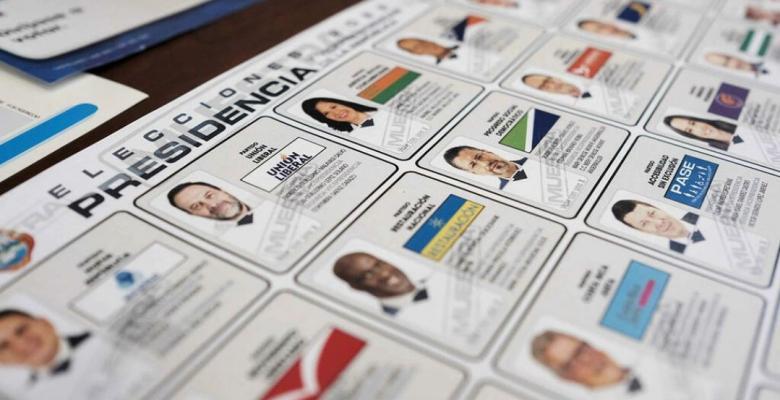Second round fairly likely: Costa Rica, hopeless elections
especiales

With 40% undecided voters and a record number of 25 candidates, Costa Rica held presidential elections on Sunday, February 6, in which two vice presidents and 57 members of the Legislative Assembly were elected in an environment characterized by the predominance of religious leaders and supporters of the hard-line neoliberalism.
The panorama is pretty similar to that of 2018, in which Carlos Alvarado prevailed over a religious fanatic with the same last name. But the result ultimately confirmed the virtual disappearance of that classic democracy with which people praised Costa Rica.
Alvarado leaves many social works unfinished, including six stalled road projects, although he did pave the way for the eradication of the few state-owned companies that still exist as well as the strengthening of a neoliberalism that affects the vast majority of the inhabitants, who see how their living conditions deteriorate. Not to mention the robustness of business oligarchies, Covid-19, and a policy that only promises more inequality in the distribution of power and income, with a growth in unemployment and corruption.
The related economic downturn led unemployment to unprecedented levels, exacerbated inequality, and brought the debt crisis to a critical point. In both 2018 and 2019, the country was rocked by protests against a tax reform and an anti-union law. Whereas in 2020, the government's plans to reach a loan agreement with the International Monetary Fund (IMF) sparked further unrest. The situation is such that specialist and university professor Iván Molina compares this Costa Rica with Chile before the social uprising of 2019.
THE CANDIDATES
The truth is that the proliferation of parties arises from the fact that interest in politics changed in the country. There is a popular feeling against traditional parties while new parties are founded and candidates are launched.
The main candidates are former president José María Figueres (1994-1998), of the National Liberation Party (center) and former vice president Lineth Saborío (2002-2006) of the Christian Social Unity Party (center-right).
The National Liberation and Christian Social Unity parties marked the dispute over the government from the mid-1980s until 2014, when the Citizen Action Party (center-left) broke out, led by the current president of the country, Carlos Alvarado Quesada, who actually, aligned himself with the most reactionary of a deteriorated Costa Rica. The official candidate, Welmer Ramos, is listed well below in the polls, so it is likely that the young party will be left out of the government.
Another candidate seeking to reach a second round is Fabricio Alvarado Muñoz, from Nueva República, a party founded in 2019 belonging to the right.
José María Villalta, from Frente Amplio (founded in 2004) is the left-wing main option, but he has few chances to actually compete.
Rodrigo Chávez, from the Social Democratic Progress Party (center), founded in 2018, is another of those candidates with some chances of competing.
The list of candidates is completed by Eliécer Feinzaig -Progressive Liberal Party; Rolando Araya -Fair Costa Rica Party; Greivin Moya -National Force Party; Eduardo Cruickshank -National Restoration Party; Rodolfo Hernández -Christian Social Republican Party; Federico Malavassi -Liberal Union Party; Sergio Mena -New Generation Party; and Rodolfo Piza -Our People Party.
In addition, Oscar Campos -National Encounter Party; Luis Cordero -Libertarian Movement Party; Oscar López -Accessibility Without Exclusion Party; Natalia Díaz -United We Can Party; Carmen Quesada -Costa Rican Social Justice Party; Christian Rivera -Christian Democratic Alliance Party; Maricela Morales -Costa Rican Democratic Union Party; Martin Chinchilla -United People Party; Roulan Jiménez -Costa Rican Social Democratic Movement Party; Walter Muñoz -National Integration Party; and Jhonn Vega -Workers' Party.
IN CONCLUSION
These elections are being held in an uncertain environment, even worse than four years ago when religious beliefs dominated the presidential campaign.
Leftist politicians remain largely distant from the working classes. Party disaffiliation has led not only to reduced participation, but also to increased electoral volatility. Today, both trends converge in a country deeply fissured by social inequalities and citizen discontent. In this context, the 2022 presidential elections are likely to favor powerful business groups, allowing them to maintain control over the government.
Translated by Sergio A. Paneque Díaz / CubaSí Translation Staff













Add new comment